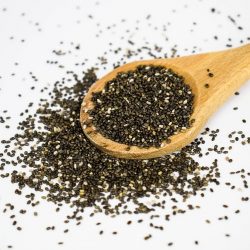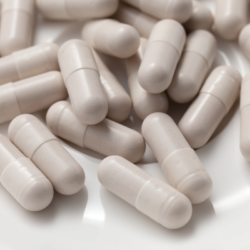The cold, flu, fatigue… Winter puts our bodies and our spirits to the test. To help you resist the cold more serenely and ward off common seasonal illnesses, turn to Vitall food supplements!Most winter illnesses are caused by mineral and vitamin deficiencies. So, until the warmer weather returns, it’s essential to adapt your shopping list and supplement your diet withnatural defence “boosters“!
How does the body increase its use of minerals in winter?
In winter, the human body undergoes various adaptations to maintain its balance and function effectively in cold conditions. These adaptations can lead to an increase in the use of minerals. Here are some of the key mechanisms that explain this increase:
- Thermal regulation: To maintain body temperature, the body increases basal metabolism, which leads to increased calorie burning. This process requires a greater quantity of minerals such as iron, which is essential for energy production and metabolism.
- Boosting the immune system: In winter, the body strengthens its immune system to fight infections. Minerals such as zinc and selenium play a crucial role in the functioning of the immune system. Increased consumption of these minerals is often necessary to support the body’s natural defences.
- Vitamin D production: With reduced exposure to sunlight, vitamin D synthesis is reduced in winter. Calcium, working in synergy with vitamin D, is then needed more to maintain bone health and regulate other bodily functions.
- Water and electrolyte balance: Temperature variations and dry air in winter can affect the body’s water balance. Minerals such as sodium, potassium and magnesium play a vital role in maintaining this balance and can be used in greater quantities to compensate for the loss of electrolytes.
- Stress and mood management: The lack of light and low temperatures in winter can affect mood and stress levels. Minerals such as magnesium are known to have beneficial effects on the nervous system and can be used in greater quantities to help manage stress and mood.
It is important to note that these increases in mineral use do not necessarily mean a deficiency, but rather an adjustment by the body to optimise its functioning in a different winter environment. A balanced diet rich in minerals can help support these bodily processes during winter.
The Vitall brand: Commitment to quality and innovation
The Vitall brand, with over 30 years of expertise in the field of natural health, focuses on the constant search for the most natural, innovative, concentrated and bio-available ingredients on the market. This approach aims to offer its customers high-quality food supplements for their well-being.
Transparency and optimum traceability
With a range of over 280 constantly evolving food supplement references, Vitall guarantees optimum transparency and traceability of its products. Every detail, from the origin of the ingredients to the harvesting methods and locations, not forgetting the labels and manufacturing processes, is carefully studied to meet the criteria of the brand’s demanding quality charter.
Commitment to ingredient quality
Vitall food supplements (unless otherwise indicated on the label) meet rigorous quality standards. They contain no gluten, no added salt, no added sugar, no starch, no preservatives, no artificial colourings, no nanoparticles and no titanium dioxide. What’s more, they are largely suitable for vegetarians, vegans and vegans, and are not tested on animals.
Selective distribution
Vitall has opted for selective distribution of its products. You can find them in natural product shops, organic establishments and pharmacies specialising in nutrition, which are geared towards providing advice and are able to guide consumers in their choice of supplements.
Innovation and naturalness
The Vitall brand favours the most natural food raw materials possible. In the absence of these raw materials, it uses “bio-identical” substances, obtained using various processes, mainly biotechnological, and identical to natural substances. In addition, Vitall strives to incorporate ingredients from organic farming into its formulas, in line with European and international scientific and technological advances in nutrition and botany. The formulations are validated by a Scientific Committee made up of experts in nutrition and supplementation.
In short, the Vitall brand is committed to offering its customers the very best in terms of quality, transparency and innovation for their well-being. With a varied range of food supplements, selective distribution and a constant focus on naturalness, Vitall has been a benchmark in the field of natural health for over three decades.
Vitall Food Supplements: Standardised extracts vs. traditional plant powders
You may be wondering what the fundamental difference is between a standardised extract and a conventional plant powder in the world of food supplements. We’re going to explore this important distinction to help you make informed health decisions.
Standardised Plant Extracts, also known as normalised or titrated extracts, differ from conventional plant powders in several key ways. Here are the key points to remember:
- Stability of Dosages: Standardised extracts guarantee stability of dosage. In other words, they offer a precise, constant and higher concentration of the plant’s specific active substances or markers. This concentration is generally expressed as a percentage of the extract. Unlike traditional plant powders, standardised extracts offer assurance as to the exact quantity of beneficial compounds present.
- Optimal purity: A standardised extract is by definition a pure substance, free from contaminants such as pollutants or pesticides. This means that standardised extracts are subject to strict purity standards to guarantee their quality.
It is essential to note that most scientific studies devoted to the study of plants have been carried out using standardised extracts. These extracts are obtained from raw plants which are first dried, then decocted and finally concentrated to extract the active compounds. This method ensures a significantly higher concentration of active ingredients than plant powders.
A concrete example of this difference is the 4:1 ratio often associated with standardised extracts. This means that a 4:1 standardised extract will contain a concentration of active ingredients four times higher than that of conventional plant powder.
Should I take a vitamin course as winter approaches?
The question of whether or not to take a course of vitamins in the run-up to winter deserves particular attention.
Boost your immunity
In winter, it’s common to consider a course of vitamins to boost your immune system. However, before taking vitamin supplements, there are a number of things to consider.
Consult a health professional
First of all, it is strongly recommended that you seek the advice of a health professional, such as a doctor or pharmacist, before embarking on a course of vitamins. They will be able to assess your specific needs based on your general state of health, your diet and your medical history.
Food, the best source of nutrients
It’s important to remember that the most beneficial source of vitamins and minerals is a balanced and varied diet. Prioritise the consumption of fruit, vegetables, whole grains, lean proteins and dairy products to obtain the majority of your nutrients from natural sources.
Supplements under medical supervision
If you’re having trouble getting enough nutrients from your diet, your healthcare professional can recommend supplements tailored to your specific needs. Be careful, however, not to overdose on vitamins, as this can lead to undesirable effects.
Essential minerals for a peaceful winter
In winter, it’s essential to look after your health by consuming essential minerals. Here are some of these minerals:
- Vitamin D: Vitamin D is essential in winter as it helps maintain bone and immune system health. It can be obtained through moderate exposure to the sun and a diet rich in oily fish, mushrooms and eggs.
- Vitamin C: Vitamin C boosts the immune system and helps fight infection. It is found in citrus fruits, kiwi fruit, peppers and spinach.
- Zinc: Zinc is crucial for immune function. It is found in seafood, nuts, seeds and lean meat.
- Iron: Iron is important for preventing anaemia and maintaining energy. Sources of iron include lean meats, legumes and spinach.
- Magnesium: Magnesium helps maintain healthy bones and muscles. It is found in green leafy vegetables, nuts and seeds.
- Calcium: Calcium is essential for healthy bones. Dairy products, green leafy vegetables and almonds are good sources.
- Selenium: Selenium is an antioxidant that can boost the immune system. It is found in Brazil nuts, fish and eggs.
- Potassium: Potassium is important for maintaining electrolyte balance. Bananas, potatoes and spinach are good sources.
- Copper: Copper is necessary for the formation of red blood cells. It is found in nuts, seafood and legumes.
- Iodine: Iodine is crucial for thyroid function. It is found mainly in marine products, such as fish and seaweed.
It is important to maintain a balanced and varied diet in winter to ensure an adequate intake of these minerals, which are vital to your health.
Which vitamin should I choose if I’m always cold?
When you’re always cold, it may be a good idea to give priority to vitamin D. This vitamin plays an essential role in regulating body temperature and maintaining a healthy immune system. A vitamin D deficiency can contribute to feeling cold. You can obtain vitamin D by spending time outdoors in sunlight and by including foods such as oily fish, eggs and mushrooms in your diet. However, it is important to consult a healthcare professional to determine whether a vitamin D deficiency is the cause of your cold sensation and to obtain appropriate advice on supplements if necessary.
Vitall, a brand of food supplements to choose in winter
In addition to a healthy diet, support from specific micronutritionfood supplements is the best way to limit the risk of developing deficiencies. Food supplements will help you give yourself the best possible chance of a safe winter.
Specialising in the manufacture of certified organic orthomolecular food supplements, the Vitall brand has developed quality food supplements for the whole family .
Rich in essential fatty acids, vitamins and minerals, Vitall food supplements promote healthy cell function.
Available in a range of forms (tablets, capsules, etc.) ,Vitall products can be used on an occasional basis or as a cure all year round .Vitall’s standardised organic extracts ensure stable dosing and a concentration of active ingredients 10 times higher than plant powder.
How to treat yourself at home: honey in winter, good for your health
Honey is a food with many virtues. The first of these is tostrengthen the body’s natural defences. During the winter months, it’s a good idea to eat enough honey to protect against illness and take advantage of itsantioxidant properties. Darker honey is said to contain more antioxidants.
However, honey should only be eaten by children aged1 and over. Giving honey to a child under this age – even in minute quantities in a recipe, raw or cooked – exposes them to infant botulism, a serious form of food poisoning. But over the age of 12 months,a small dose of honey can be added to the meals of young and old alike to arm them against the terrors of winter. Milk can even be mixed with a little honey, as it improves calcium absorption and makesmilk easier to digest.
And when the flu sets in, honey, which also has antiseptic and antibacterial properties, is an excellent ally against dry coughs and sore throats. You can use it to sweeten your cup of tea or hot milk, or slowly drip the honey down your throat to relieve the discomfort. Needless to say, honey does not “treat” or replace a doctor’s prescription. Especially during a pandemic, any persistent or worrying symptoms should be reported to a doctor.





